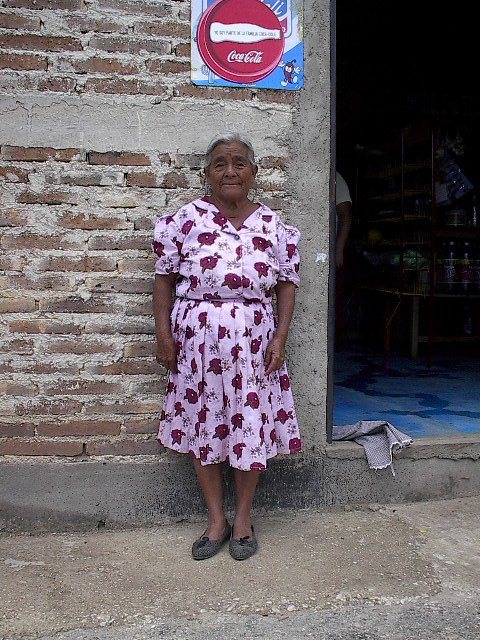
Elders, Health and Culture
By 2050, the population of adults aged 60 and over will increase from 1 in 10, to 1 in 5, and from 1 in 5 to 1 in 2 in some developed countries, driving elder health to the top of research and intervention agendas. Exploration of elder health research strategies and findings in various cultural contexts is crucial in shaping appropriate responses. Elder health is often marked by gender disparity, or contrasts in men’s and women’s health status, understandings, and experiences. Contrasts between elders’ and their care providers’ perspectives on health needs and resources is another “difference that makes a difference.” Ethnic distinctions compound these contrasts. My work on elder health among Mexican Americans, Tojolabal (Mayan), and non-indigenous Chiapanecos elucidate these contrasts and point to means of improving elder health. Further, methodological and ethical questions surface: Are established health research methods relevant, ethical and valid when applied to the aged? How can researchers best access and represent elders’ lived experiences? Ultimately, can we engage and empower older adults and the healthcare community through research?
Publications
“Using formative research to explore and address elder health and care in Chiapas, Mexico.”
Glantz N. In: Anthropology and Public Health: Bridging Differences in Culture and Society. Hahn RA & Inhorn M. 266-298. 2009.
“Formative research on elder health and care in Comitán, Chiapas, Mexico.”
Glantz N. Dissertation, University of Arizona. Ann Arbor: ProQuest/UMI 3257921. 2007
“Formative research and participatory GIS mapping: Elder well-being in Chiapas, Mexico.”
Glantz N & McMahan B. Practicing Anthropology 29(4): 6-14. 2007.
Titles in Spanish indicate work written, published, and/or presented in Spanish. Translated titles follow in parentheses.
Manuscripts Not Yet Published
“Missing women in Chiapas? Inquiry sparked by an unanticipated gendered masculinity index.”
Sánchez-Ramírez G, Santana-Echeagaray ME, Glantz N. 2006.
“Venom, medicine, or bad remedy? Discourse regarding pesticides among gender-generational groups in a Tojolabal region of Chiapas, Mexico.”
Glantz NM & Tinoco Ojanguren R. 2005.
“The Household Production of Elderly Mexican American Health.”
Glantz N. Tucson: University of Arizona. 25 pages. 2003.
Presentations, Conferences, Sessions and Working Groups Organized
To download information on organized sessions and working groups, go to All Presentations authored by Namino Glantz
“Merging formative research with participatory GIS mapping to address elder health in Chiapas, Mexico.”
Glantz N. Society for Applied Anthropology (SfAA) Annual Meeting, Tampa, March 2007.
“Aging Adults, Maturing Methods? Multidisciplinary Health Research in Elder Populations.”
Glantz N. Session Organizer. Society for Applied Anthropology/Society for Medical Anthropology Annual Meeting, Vancouver, 2006.
“Jumpstarting community engagement around elder health: Formative research in Chiapas, Mexico.”
Glantz N. Society for Applied Anthropology / Society for Medical Anthropology (SfAA/SMA) Annual Meeting, Vancouver, March 2006.
“Research on Gender, Elder Health and Care in Chiapas, Mexico.”
Glantz N. Association for Women Faculty Interdisciplinary Research Symposium. Tucson: University of Arizona, March 2006.
“Research on Gender, Elder Health and Care in Chiapas, Mexico.”
Glantz N. Woodrow Wilson Johnson & Johnson Women’s Health Fellows Conference. March 2006.
“Primer Encuentro: Salud y Bienestar en Personas de la Tercera Edad.”
(“First Encounter: Health and Well-being among Elder Adults.”)
Glantz N. Conference Organizer. With institutional support from the Centro de Investigaciones en Salud de Comitán. Comitán, Chiapas, Mexico, 2005.
“Venom, medicine, or bad remedy? Discourse regarding pesticides among gender-generational groups in a Tojolabal region of Chiapas, Mexico.”
Glantz NM & Tinoco Ojanguren R. Society for Applied Anthropology Annual Meeting, Santa Fe, 2005.
Comité de Atención Integral y Multidisciplinaria para Adultos Maduros.
(Committee for Integral & Multidisciplinary Care for Older Adults, CAIMAM.)
Glantz N. Working Group Organizer. Comitán, Chiapas, 2005.
Publications and Presentations
Domestic Service | Reproduction | Gender Relations & Violence
Clinical & Household Care | Social Capital | Research & Planning